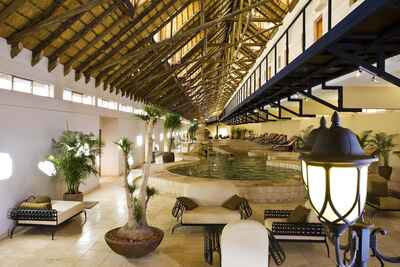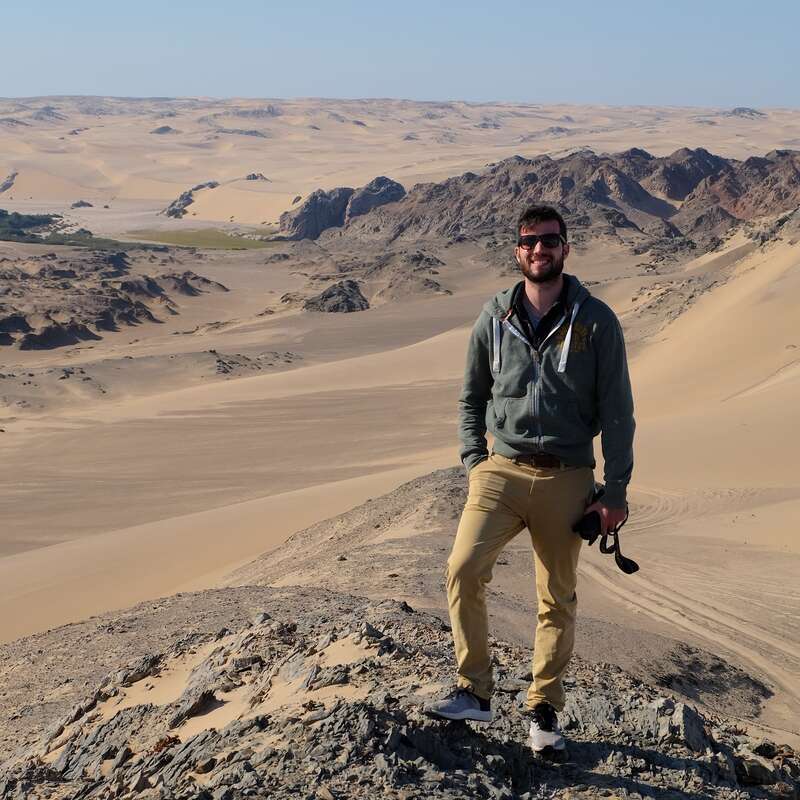About Ai-Ais Hot Springs Spa
Ai-Ais Hot Springs Spa lies at the Southern end of Fish River Canyon, in a scenic area beside natural sulphurous ...
... hot springs, from which it got its name, as Ai-Ais means 'burning water' in the Nama language. As well as the spa facilities it offers a number of different room types, suitable for those travelling between South Africa and Namibia and for those visiting Fish River Canyon.
For those who prefer to relax and take things a little more slowly, Ai-Ais Hot Springs Spa could be a place to do just that. Although be prepared that in high season at this relatively large lodge it may feel busy and you are likely to get less personal attention than at others. However it’s location means that guests can drive themselves to the main view points of Fish River Canyon in the morning and soak in the hot springs in the afternoon.
Our view
For those who prefer to relax and take things a little more slowly, Ai-Ais Hot Springs Spa could be a place to do just that. Although be prepared that in high season at this relatively large lodge it may feel busy and you are likely to get less personal attention than at others. However it’s location means that guests can drive themselves to the main view points of Fish River Canyon in the morning and soak in the hot springs in the afternoon.
Accommodation
43 rooms
Children
Best for aged 5+
Open
All year
Activities

4WD Safari

Guided walking safari

Private activities

Self-guided walking
Traveller reviews of Ai-Ais Hot Springs Spa
6 real, un-edited reviews from Expert Africa's travellers.
Arrived 19 Jul 2022, 1 nights
"Ai-Ais Hot Springs Spa review"
Overall rating: Average
Arrived 24 Jul 2022, 1 nights
"Ai-Ais Hot Springs Spa review"
Overall rating: Average
Arrived 27 Sep 2012, 1 nights
"Ai-Ais Hot Springs Spa review"
Overall rating: Poor
Arrived 6 Aug 2012, 2 nights
"Ai-Ais Hot Springs Spa review"
Overall rating: Excellent
Arrived 6 Apr 2011, 2 nights
"Ai-Ais Camp a pleasant surprise"
Overall rating: Excellent
Arrived 5 Oct 2010, 1 nights
"Hot Springs Cold Reception!"
Overall rating: Good
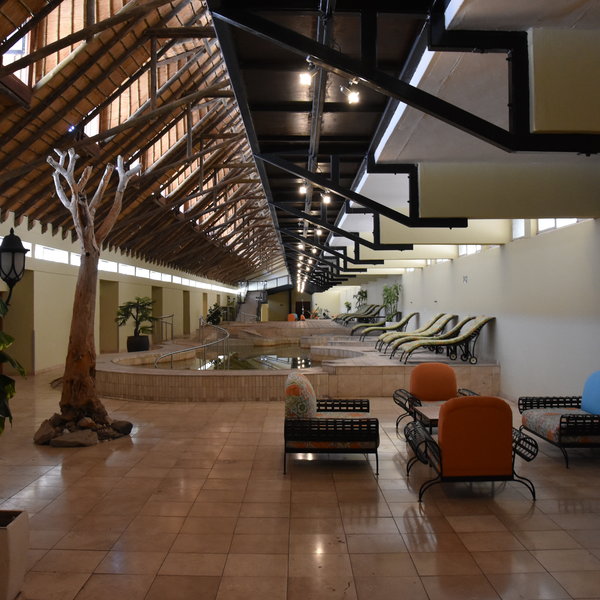
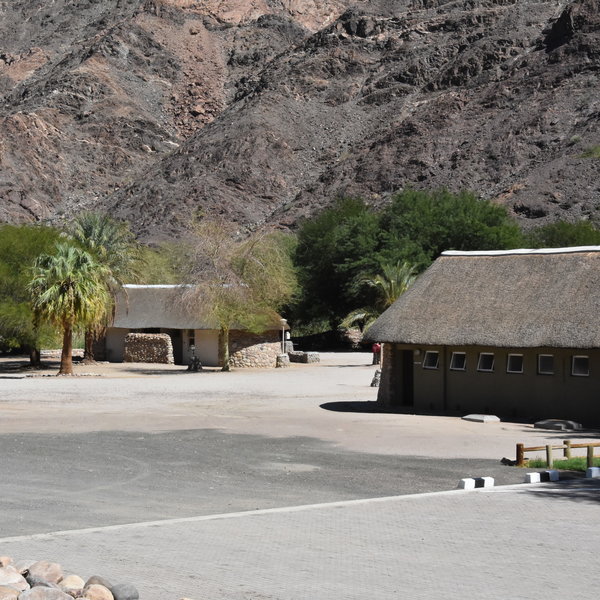
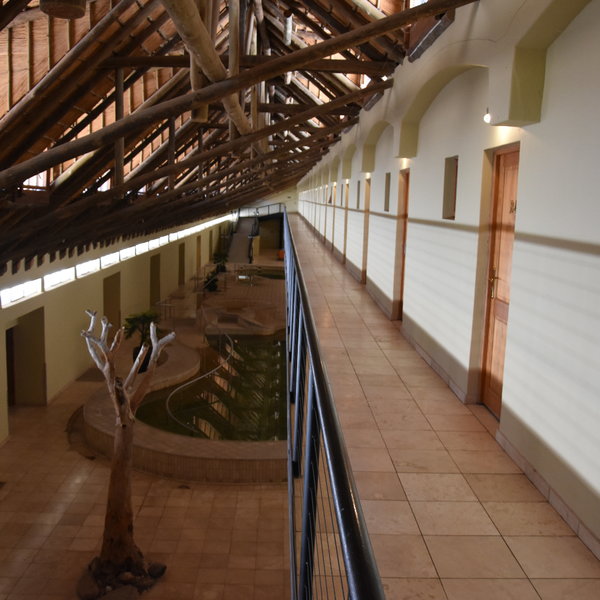
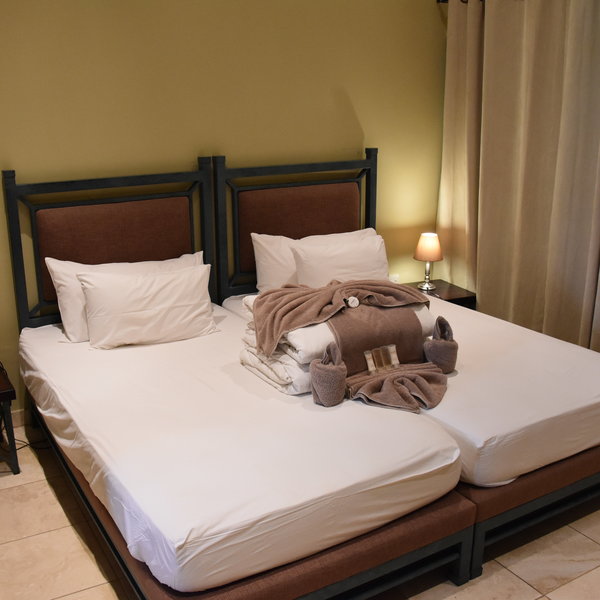
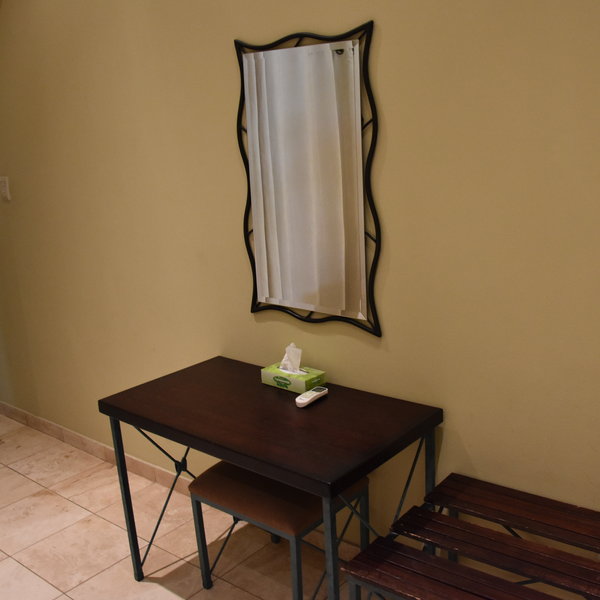
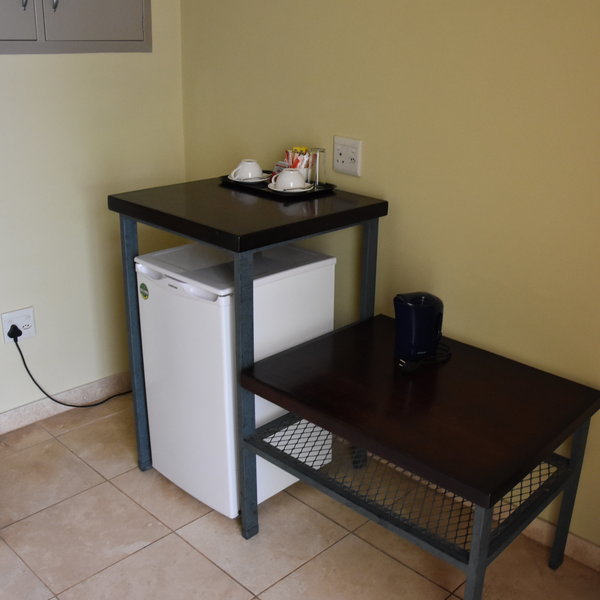
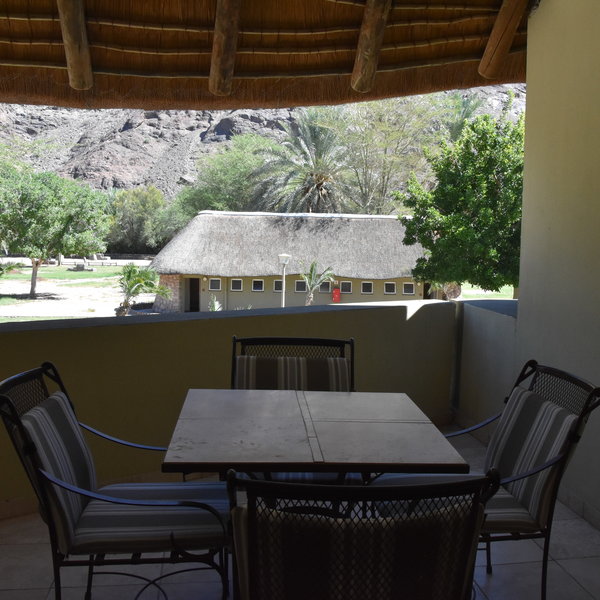
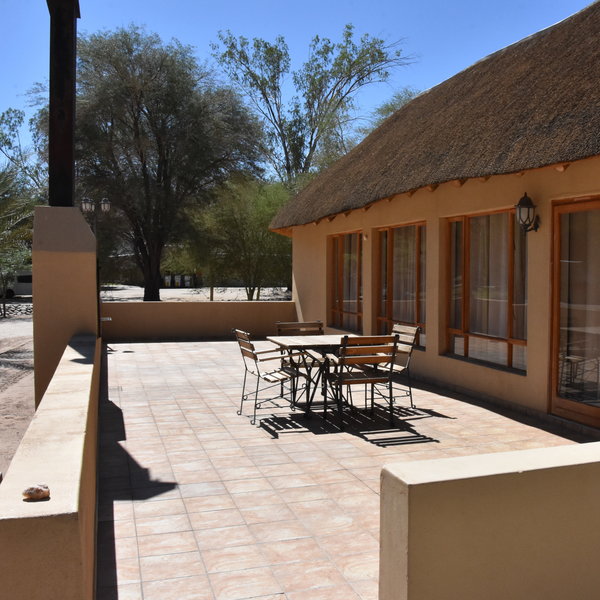
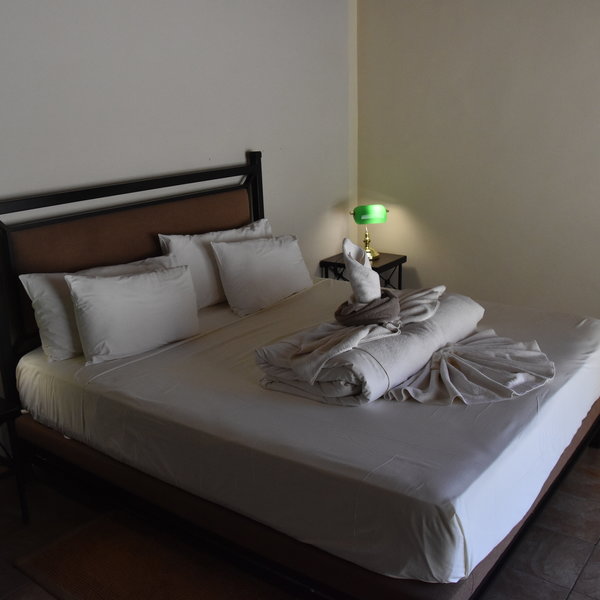
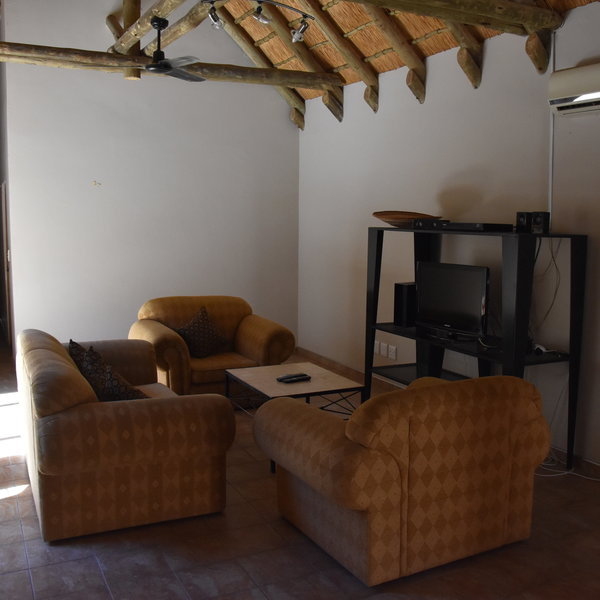
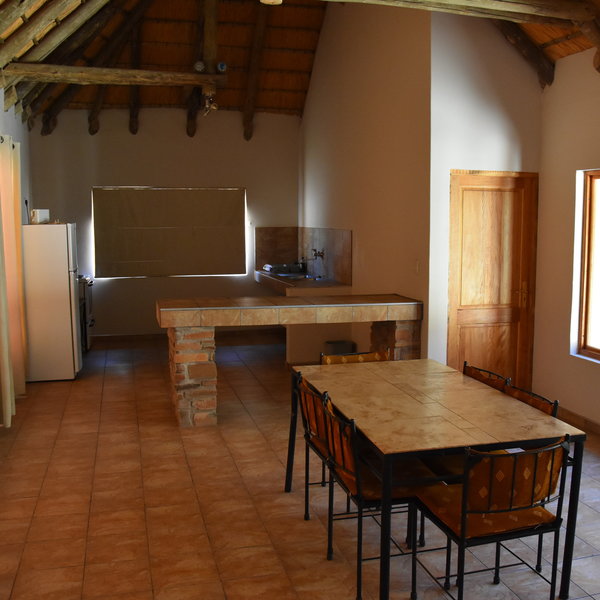
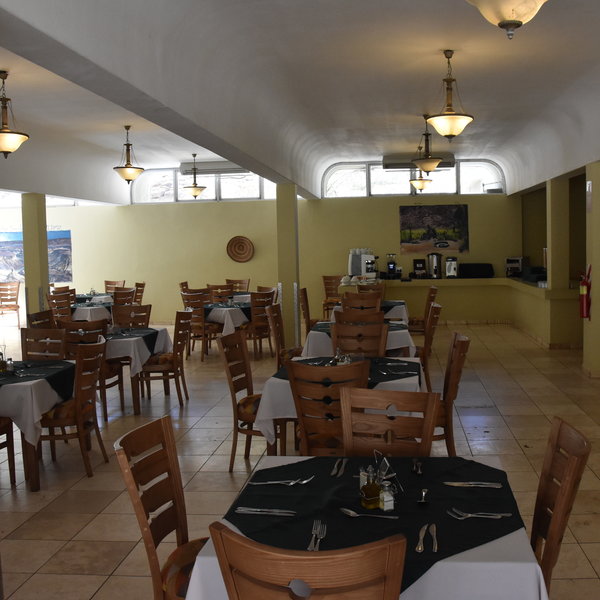
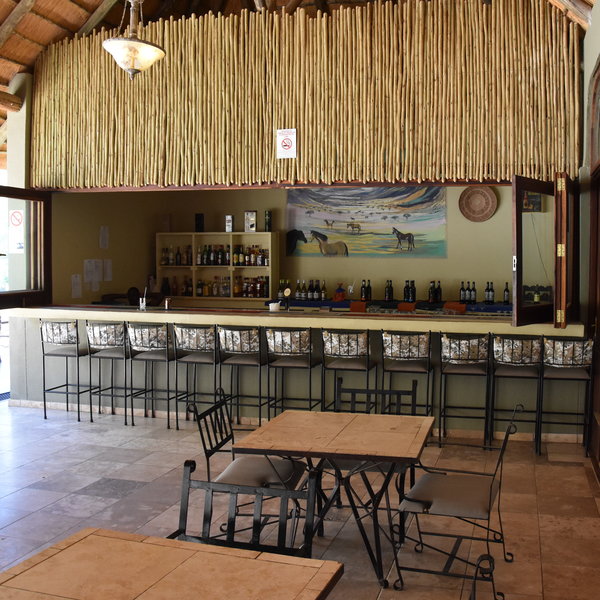
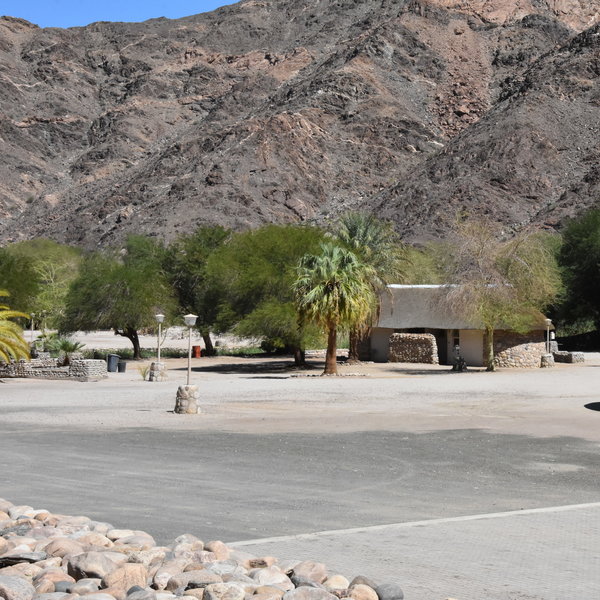
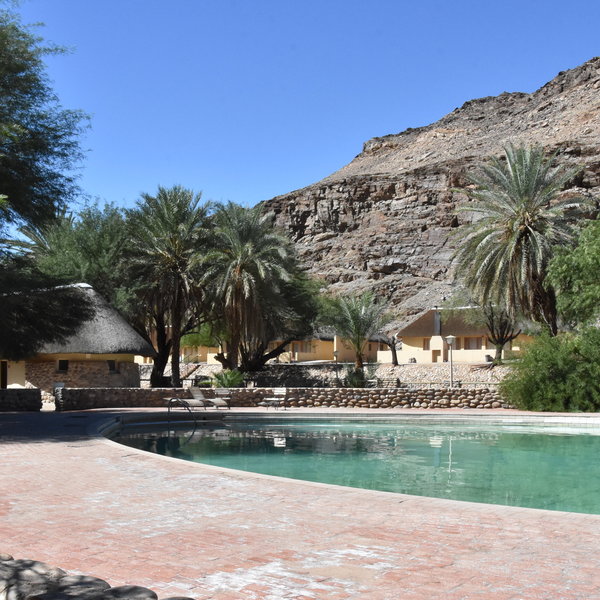
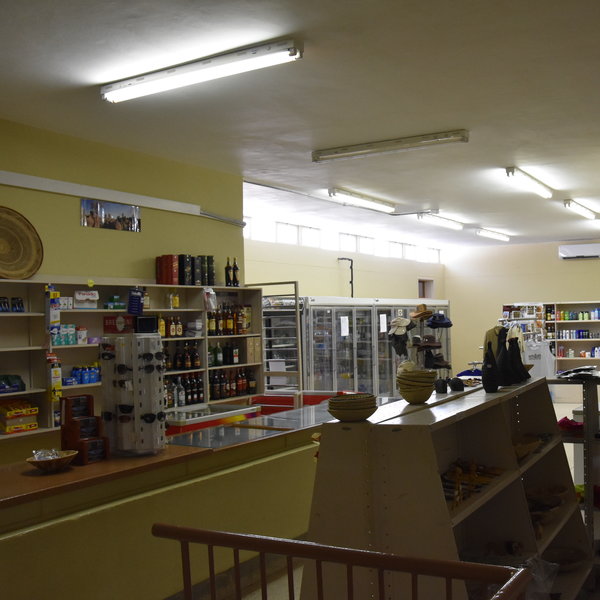
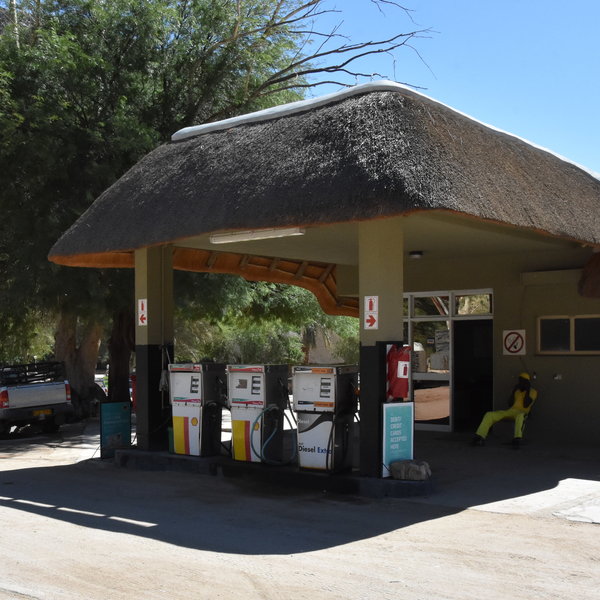
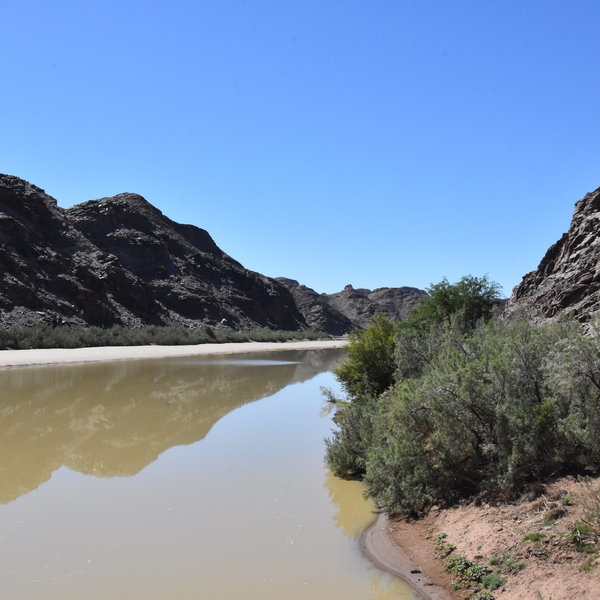
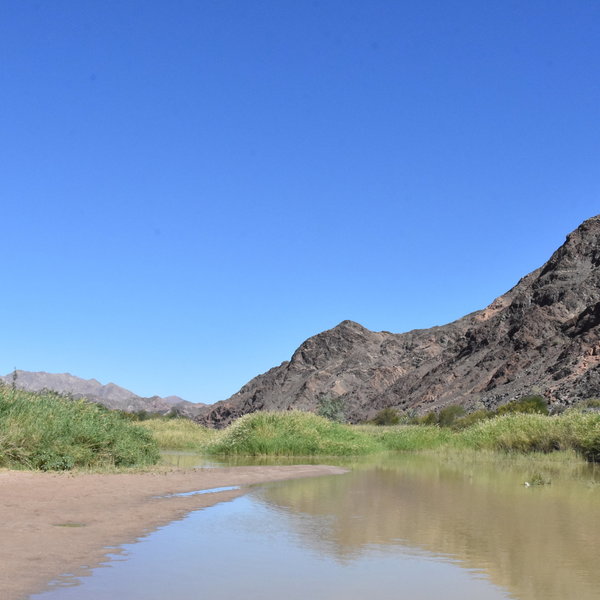
Expert Africa's gallery
When we travel we take lots of photos ourselves to give you a real and un-edited view of the safaris. See our 24 pictures of Ai-Ais Hot Springs Spa to get the candid view.
View galleryAi-Ais Hot Springs Spa: Our full report
Ai-Ais Hot Springs Spa lies at the Southern end of Fish River Canyon, in a scenic area beside natural sulphurous ...
... hot springs, from which it got its name, as Ai-Ais means 'burning water' in the Nama language. As well as the spa facilities it offers a number of different room types, suitable for those travelling between South Africa and Namibia and for those visiting Fish River Canyon.
With 43 rooms, Ai-Ais offers a range of accommodation choices. There are 16 river view double rooms and 20 mountain view doubles rooms, as well as seven bush chalets that can also be used for families. When we last visited in April 2018, we found these room descriptions to be somewhat ambiguous, as the river view rooms look out over the campsites and the pool with the mountains behind, and the mountain view rooms are so close to the mountain, that perhaps 'rock view' might be a more appropriate name! The lodge is set in a lovely area at the southern end of the Fish River Canyon and we can't help but think that an opportunity has been missed, if only it had been built in a slightly different location the rooms could have had a much nicer aspect.
Other than the view, the river view and mountain view rooms are very similar, decorated in various shades of beige, with a double bed in the centre, a fridge, tea and coffee facilities, air conditioning and a small balcony. Typical with many Namibian Wildlife Resort (NWR) properties across the country we thought that finishing touches had been missed and the attention to detail where maintenance is concerned could be improved. However the rooms looks comfortable and mostly clean with en-suite bathrooms, the river view rooms also have an outdoor shower, although not with a view. Liquid soap, shampoo and towels are provided. It's worth noting that all the double rooms lead off the main indoor pool, which is convenient for those using the pool but we imagine this would make them quite noisy when the pool was busy. As the campsite with up to 100 pitches is also not too far away from the river view rooms you may struggle for peace and quiet if they were all in use.
The bush chalets are set away from the main building and are therefore quieter. These large chalets are suitable for families or friends travelling together, and have self-catering facilities including a fridge, a stove, a microwave, a kettle and crockery, cutlery and pots and pans. As well as a kitchen there's also a dining room, a lounge with a TV, a small courtyard, two bedrooms (one twin one double), two bathrooms and an outdoor braai area.
Camping facilities are also available and at busy times guests may find tents pitched right in front of the main building and the outdoor pool.
The main area of Ai-Ais consists of a large complex containing the indoor pool fed by a natural spring, restaurant, bar, reception and curio shop which also sells basic food supplies. The indoor pool is fed by a hot spring, and so the temperature is warm. This is not really a swimming pool but more of a relaxing, soaking pool. Around the pool are various chairs and loungers for relaxing. Outside, opposite the main area is an outdoor pool, which is also warm but not as warm as the indoor pools.
Next to the indoor pool is the spa, which offers a variety of treatments (that must be pre booked) including various massages, facials, hydrotherapy and manicures and pedicures, all for an extra cost.
Other than relaxing in the hot pools, activities available at Ai-Ais include hikes in Fish River Canyon, guided nature walks, and visits to the canyon, it is around an hour to an hour and half’s drive to the entrance to the viewpoints on the eastern side of the canyon. The spa can also be visited and used (for a fee) by those staying at other camps in the area.
Activities
4WD Safari
Guided walking safari
Private activities
Self-guided walking
Families & children
- Attitude towards children
- Children are welcome at Ai-Ais Hot Springs Spa.
- Property’s age restrictions
- There are no age restrictions here.
- Special activities & services
- Children can use any of the swimming pools.
- Equipment
- Highchairs are available.
- Generally recommended for children
- Yes, as long as they are supervised in the pools and around the hot springs.
- Notes
- Children must be supervised at all times, especially in the pools and baths. Children are not allowed into the spa area unless they are booked for a treatment.
Food & drink
- Usual board basis
- Bed & Breakfast
- Food quality
- On our most recent trip to Ais-Ais Hot Springs Spa in April 2018 we enjoyed a hearty lunch here. Although the service was a little hard to come by we enjoyed toasted sandwiches with chips that we ordered from the lunch menu.
We have not eaten an evening meal from here on recent trips but we understand that it consists of a buffet style and would expect it to be of the same standard as the various other NWR properties, mainly edible but nothing to write home about. The large restaurant can serve up to 100 guests in one sitting so maybe that goes some way to explaining this. Guests staying in the bush chalets can also use the self-catering facilities available there. - Dining style
- Individual Tables
- Dining locations
- Indoor and Outdoor Dining
- Drinks included
- No drinks are included.
Our travellers’ wildlife sightings from Ai-Ais Hot Springs Spa
Since mid-2018, many of our travellers who stayed at Ai-Ais Hot Springs Spa have kindly recorded their wildlife sightings and shared them with us. The results are below. Click an animal to see more, and here to see more on our methodology.

100% success

0% success

0% success

0% success

0% success

0% success
Getting there
- Location
- Fish River Canyon, Namibia
- Ideal length of stay
- 2-3 nights
- Directions
- Ais-Ais Hot Springs Spa is located in the very south of Namibia near to the South African border, it is at the southern end of the Fish River Canyon.
- Accessible by
- Self-drive
Communications
- Communications
- Guests can use the phone at reception if necessary. There is little mobile pone coverage.
- TV & radio
- Only the premier chalets have televisions.
- Water supply
- Borehole
- Water supply notes
- Each room has flush toilets and hot and cold running water.
Health & safety
- Malarial protection recommended
- No
- Medical care
- The nearest hospital is in Keetmanshoop, although many of the staff here know basic first aid.
- Dangerous animals
- Low Risk
- Security measures
- There is a guarded gate on the property.
- Fire safety
- Fire extinguishers are located outside each room.
Useful info
- Disabled access
- On Request
- Laundry facilities
- Extra Charge
- Money
- Local currencies are accepted but there is no currency exchange available. A safe is available at reception.
- Accepted payment on location
- Visa and Mastercard are accepted for card payments whilst South African rand and Namibian dollars are accepted currencies for cash payments.
Plan and book your trip with Expert Africa
All of our trips are tailor-made, so we'll always adapt them to suit you. Talk to an Expert and let us plan and arrange your perfect trip.

Talk to an Expert
Call or email us now! We’ll match you with the Specialist in our team who is best suited to help you. Then together we can start planning your trip.

Set up your itinerary
Based on our experience and your ideas, your specialist will create a detailed, costed itinerary. We’ll refine it together, until we have a trip that you’re perfectly happy with.

Prepare for your trip
The same Specialist will make the seamless arrangements for your trip, send you detailed travel documents, and be available to answer any questions before you depart.

Travel with peace of mind
After you set off, you’ll be cared for by our partners in Africa, most of whom have worked with Expert Africa for decades. And if you ever need us urgently, we’re available 24/7.

When you return
We love to learn about your trip, and so will always be grateful if you’ve the time to give feedback to your Specialist when you return.
Ai-Ais Hot Springs Spa's location
Look closer at the environment and surroundings of Ai-Ais Hot Springs Spa.
Other lodges in Fish River Canyon
Alternative places to stay in this same area.
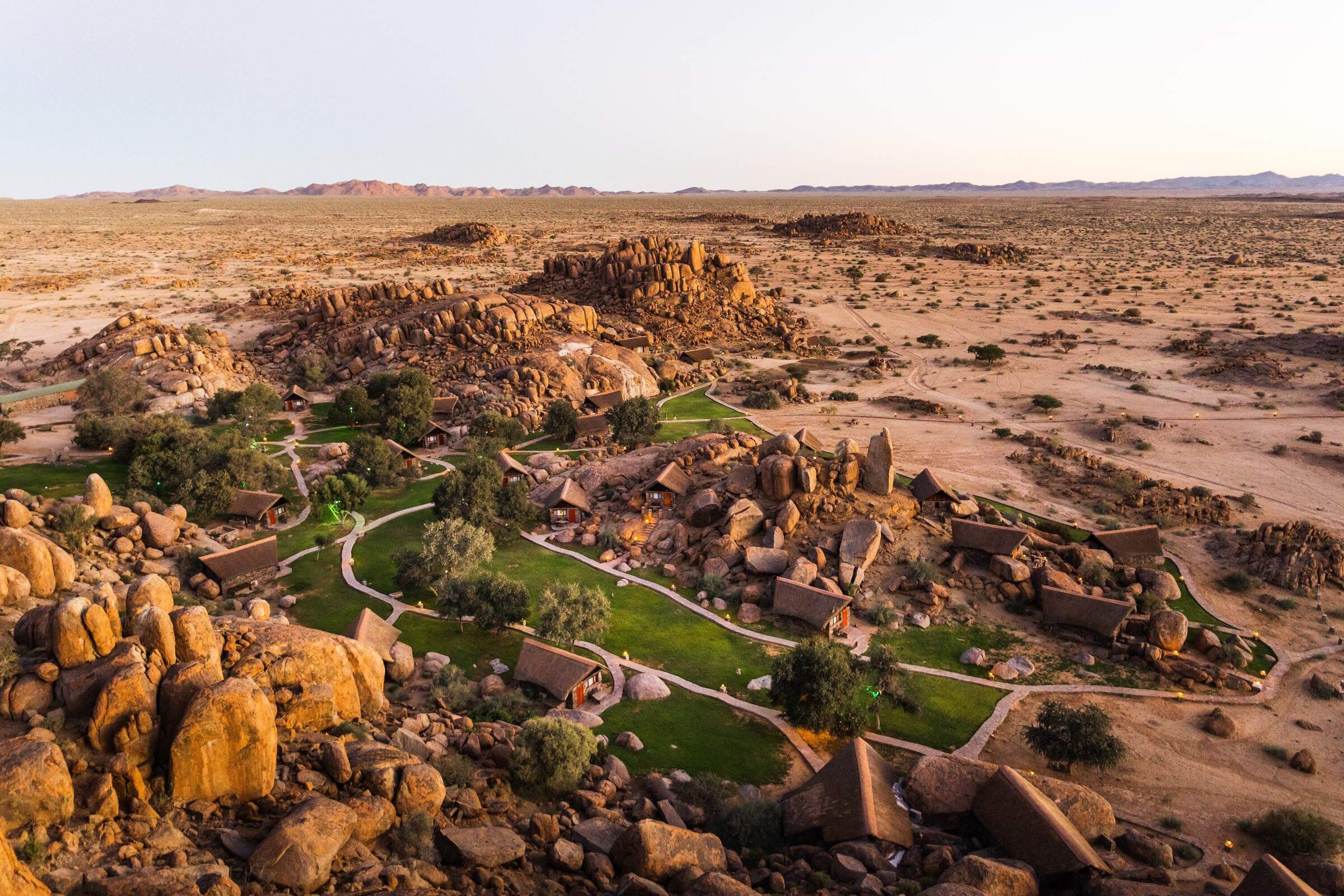
Canyon Lodge
Just 20km from Fish River Canyon, Canyon Lodge was the first lodge in the area, with individual chalets built amongst huge granite boulders.
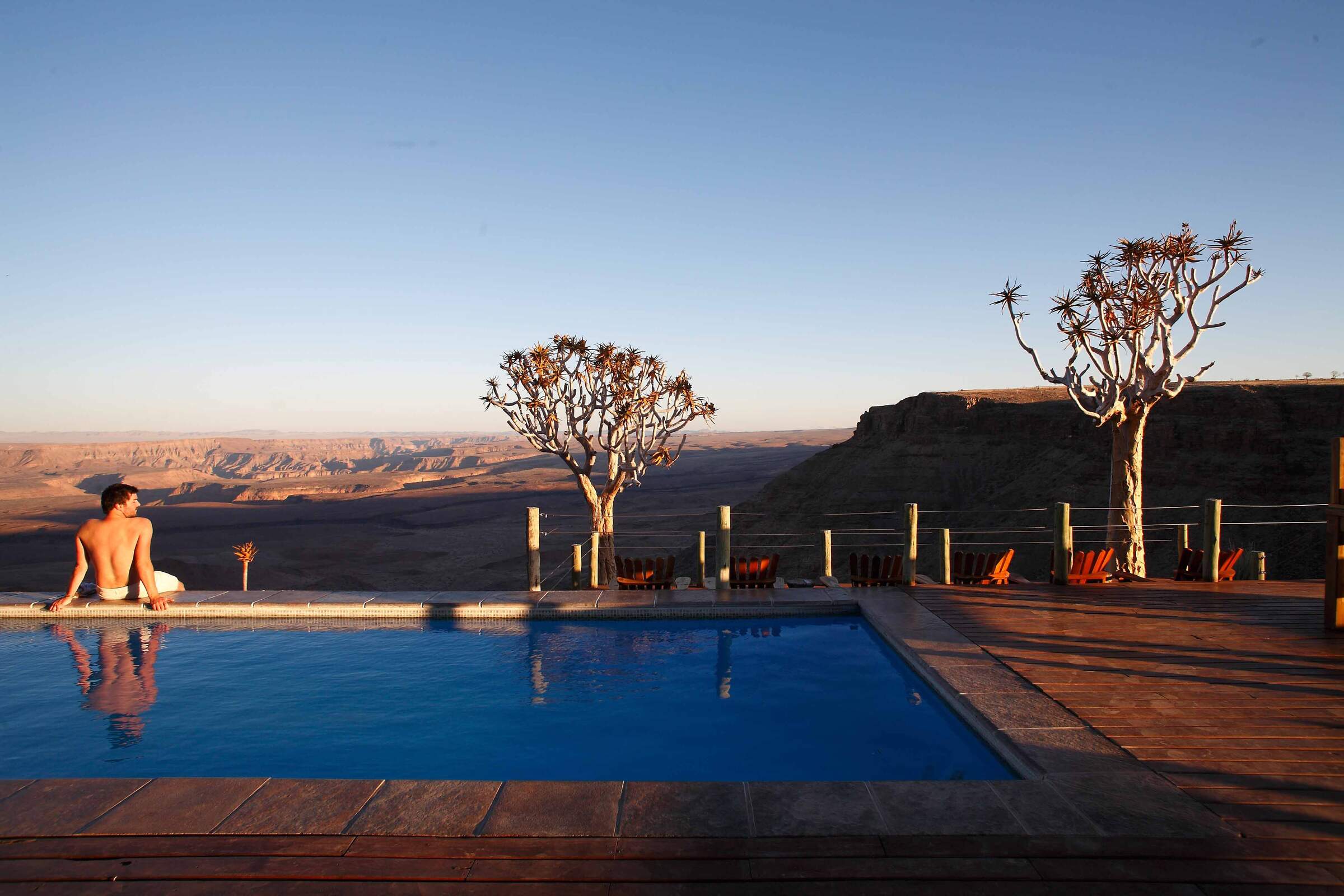
Fish River Lodge
Perched on the lip of Fish River Canyon, Fish River Lodge has some of the best views of any lodge in Namibia.
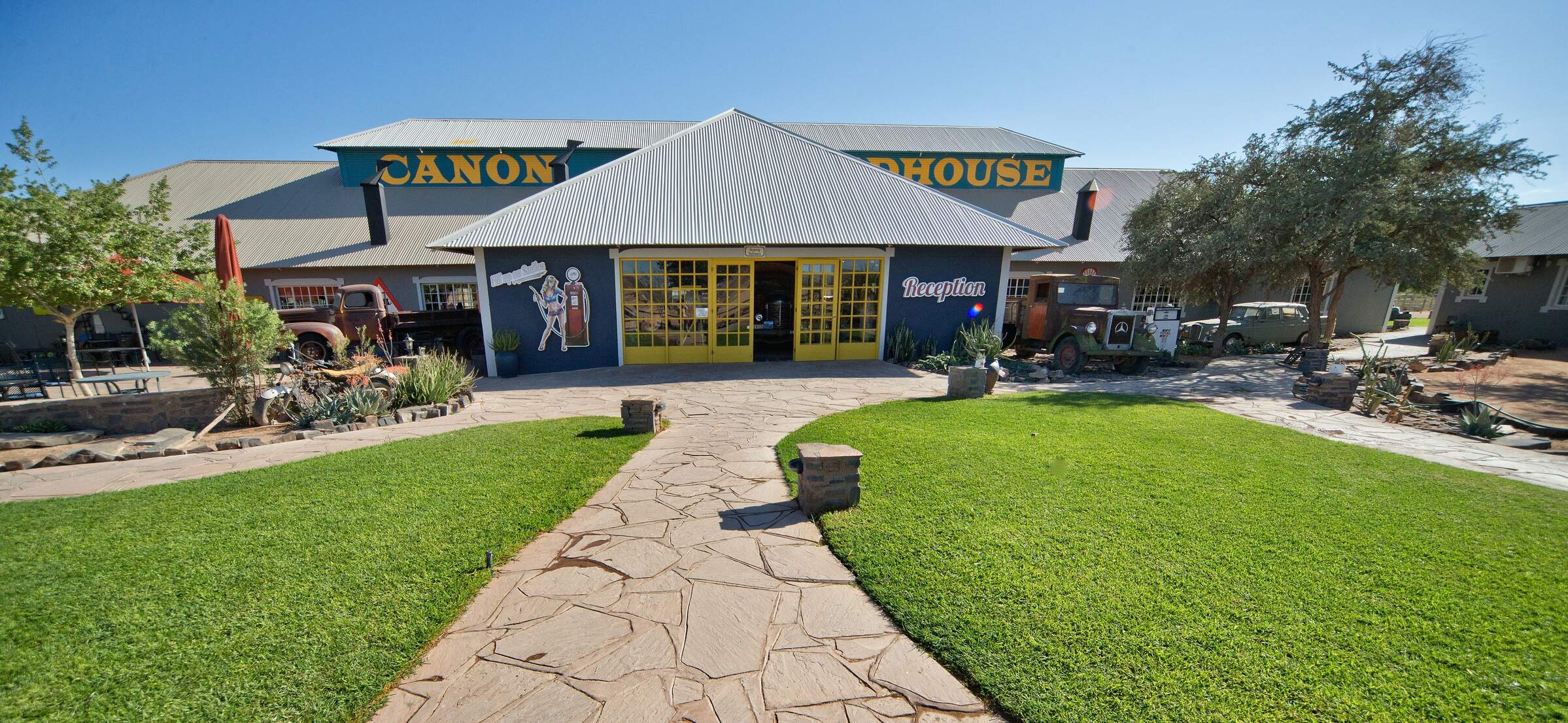
Canyon Roadhouse
Relatively close to Fish River Canyon, Canyon Roadhouse combines the feel of an old farm with an extraordinary array motor memorabilia.
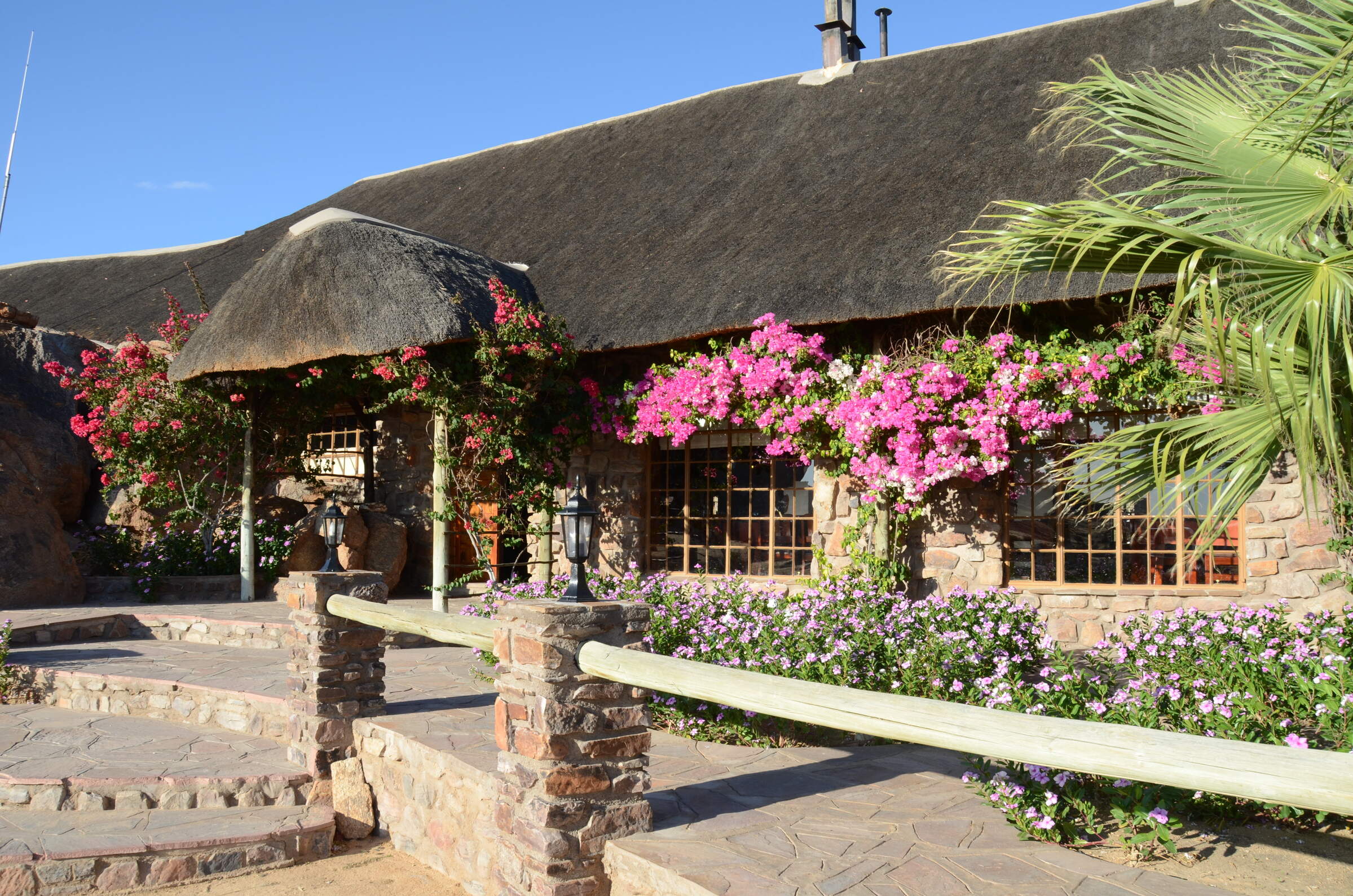
Canyon Village
Close to Fish River Canyon, the reasonably priced Canyon Village features interior walls covered in murals by Namibian artists depicting the history of the area.
When to go to Fish River Canyon
Our month by month guide: What it's like to visit Ai-Ais Hot Springs Spa in Fish River Canyon
Jan
Feb
Mar
Apr
May
Jun
Jul
Aug
Sep
Oct
Nov
Dec
Namibia in January
January is at the heart of Namibia’s rainy season. However, as you’d expect from a country dominated by desert and semi-desert environments, the rains are often (but not always) weak and usually quite localised. Some days will be clear, the strong sun raising temperatures to around 30ºC/86ºF; on others humidity and clouds build, sometimes culminating in spectacular thunderstorms. In extreme cases, these generate flash-floods which race down the beds of ephemeral rivers.
Across the country, the greening landscape makes a refreshing change, especially in desert areas. Many birds are in full breeding plumage and migrant species are here in force. In the north, where the rains are more reliable, the abundant water and food allows wildlife to disperse, making it trickier to spot.
- Variable weather: clear, hot & dry, or cloudy & humid with some rain
- Occasional, highly localised thunderstorms
- Many animals with young; birdlife at its most spectacular
- Wildlife dispersed & harder to see, especially in Etosha & the Caprivi
- Very few tourists (apart from the New Year) so rates mostly low
Our view
This is not a great time to visit
Weather in January
Namibia in February
February is the wettest month, but as Namibia is dominated by deserts, the rains are often weak and patchy. The variation in weather across Namibia is significant, too; the central highlands and Caprivi can see some heavy rain. More typically, some February days are clear with a hot, strong sun; others are cooler as cloudy skies build and, sometimes, culminate in short, spectacular thunderstorms. Occasionally these generate flash-floods, bringing ephemeral rivers to life and making travel more challenging.
Across the country, the landscape feels green and alive; insects and smaller animals are more easily seen, and many birds and animals are raising their young. However, small pools in the bush and thicker vegetation can make it hard to spot the wildlife.
- Variable weather: clear, hot & dry or cloudy & humid with some rain
- Occasional localised thunderstorms meander over the landscape
- The bush feels alive; birdlife is at its most spectacular
- Wildlife in Etosha & Caprivi is dispersed & harder to see
- Few tourists, so rates usually at their lowest
Our view
This is not a great time to visit
Weather in February
Namibia in March
March usually sees Namibia’s main rains tailing off, although actual precipitation varies hugely across the country and can be unpredictable from day to day. Many days will be clear, with a strong sun driving temperatures up. On others, clouds will build, and the late afternoon may see a short, spectacular thunderstorm. Such deluges reduce in both frequency and volume as the month progresses.
Across the country, landscapes are often vivid: a “green and pleasant land”. Many birds and animals are finishing raising their young, so smaller animals and insects are in evidence. In the north, where rains are generally heavier, pools in the bush and thicker vegetation can make it difficult to spot larger animals.
- Variable weather: clear, hot & dry or cloudy & humid with some rain
- Afternoon thunderstorms less common as March progresses
- Animals looking sleek and well-fed, after 3–4 months of plenty
- Wildlife in Etosha & Caprivi is dispersed & harder to see
- Few tourists visit during March, so rates often low
Our view
A good time to visit, with pros & cons
Weather in March
Namibia in April
Typically, April is dominated by dry weather; there’s an ever-decreasing chance of rain. Temperatures are now below their peak and continue to fall. Even so, days remain pleasant and warm, but there might be a slight chill in the air at night. The rains usually leave many parts of the country verdant and green, so animals are in fantastic condition – often with fast-growing young in attendance.
With the dust washed out of the atmosphere, photographers make the most of clear air, spectacular landscapes and healthy animals. Stargazers will have clearer night skies as the month progresses. In the game parks of Northern Namibia, water and food remain in plentiful supply, so finding big game can prove trickier than later in the year.
- Becoming drier &, especially at night, also cooler
- Few visitors, except around Easter, so rates remain low
- Wildlife in Etosha & Caprivi remains relatively hard to see
- Migrant birds have started to leave
- Fresh, clean air and often green, verdant landscapes
Our view
A good time to visit, with pros & cons
Weather in April
Namibia in May
By May, Namibia is usually drying out fast as the rains have ended. If they’ve been good, then the land remains green, but wildlife starts to congregate at more permanent water sources. Over much of the country the air quality and clarity can be amazing, making this an ideal month for photography.
Typical days are warm, with crisp, clear mornings and clear blue skies. Evenings are usually cool, and temperatures may dip below 10ºC (50ºF) overnight. Many lodges still charge “low season” prices, although with Namibia’s increasing popularity in recent years, some have started to introduce higher “shoulder season” rates.
May’s good-value rates, increasingly good wildlife sightings, beautiful landscapes and crystal-clear air combine to make this one of our favourite months in Namibia.
- Lovely weather: dry, warm days & cool nights
- The country is drying out although many landscapes remain green
- Fantastic air clarity – ideal for keen photographers
- Visitor numbers are often still low, mirrored by lodge rates
- Wildlife is starting to congregate more around remaining water
Our view
A very good time to visit
Weather in May
Namibia in June
Namibia is dry again. Skies are blue and usually largely cloudless. Days are lovely: warm and dry; nights are cold, sometimes below freezing in the desert. Most swimming pools in Namibia are always outdoors, making them too cold for all except the very dedicated.
Take a warm hat and gloves for game drives, where dawn and dusk will feel particularly chilly. In the north, especially Etosha, wildlife viewing is now into its dry-season pattern, focusing around the waterholes – though the park is still not busy.
Photographers come for superb air clarity, with minimal dust or smoke in the air. Historically, June rates have been low. However, with Namibia’s increasing popularity many lodges now count it amongst their “high-season” months, and request higher prices.
- Clear, bright days with blue skies; cold nights, mornings & evenings
- Great air quality, especially welcome for photographers
- “Shoulder season” for some lodges: lodge rates moderate
- Wildlife gravitates to waterholes, making game-viewing productive
- Some greenery in the landscape, depending on the last rains
Our view
A very good time to visit
Weather in June
Namibia in July
Reliably warm daytime temperatures (upwards of 20ºC/70ºF) and good wildlife sightings make this a popular month to visit Namibia. Rain would be very unusual indeed and clear skies make for great photographs. Once the sun sets, though, temperatures cool rapidly bringing cold nights that may dip below freezing in the desert. Be prepared: dress in layers and expect early-morning and late-afternoon drives, and anywhere coastal, to be cold.
As the land dries and vegetation shrivels, game congregates beside drinking water: Etosha’s waterholes are busy with animals. Across the country, lodges charge “high season” rates; many are fully booked a year or more in advance, especially during European school holidays (from the latter half of July to late August).
- Dry days, warm in the sun, with crisp, cold nights
- Cloudless skies: July is usually superb for stargazing
- The beginning of European school holidays so more families travelling
- Peak season: so high rates and many lodges fully booked far in advance
- A fantastic time of year for wildlife watching, particularly in Etosha
Our view
A very good time to visit
Weather in July
Namibia in August
August is the height of Namibia’s “winter”. Expect cloudless skies and plenty of warm sun in the day, but nights down to freezing in the desert. Dress in layers and bring warm clothes (including hats and gloves) for chilly starts and evenings. Only the hardiest even contemplate using outdoor pools.
It’s 3–4 months since any rain, so the land is dust-dry and much vegetation is golden brown. Many landscapes appear sparse and harsh. Wildlife congregates around available water sources, helping to guarantee good animal sightings.
Namibia is never really “busy” by the standards of Europe or the USA, but August is the most popular time to visit, especially for families. Book early (over a year in advance) if you want to stay at the best lodges.
- Dry days, warm in the sun; cold mornings, evenings & nights
- Cloudless skies in the day; spectacular stars at night
- Busy by Namibian standards: family rooms in particular demand
- Peak season: so high rates and many lodges fully booked far in advance
- A fantastic time of year for wildlife watching, particularly in Etosha
Our view
Fantastic: the very best time to visit
Weather in August
Namibia in September
September is a month of blue, cloudless skies and fantastic wildlife viewing. Rain is almost unheard of. As the month progresses, the days and nights get warmer. In some areas, daily maximums hit around the low 30s Celsius, although low humidity ensures this feels comfortable. The contrast makes the nights seem very cold. The air is becoming dustier, occasionally augmented by smoke from fires – so becoming hazy for photographic purists.
In the national parks, animals congregate around remaining water sources – making September one of the best months for game viewing. Hence it’s one of Namibia’s most popular months for visitors: a “high season” month that is often the time of choice for safari aficionados.
- One of the best months for wildlife viewing
- Warm days & cold nights, with temperatures rising during the month
- Many plants have faded from green to golden brown
- Air can be hazy – with dust & sometimes smoke
- High season rates; many lodges & camps are full 9 months in advance.
Our view
Fantastic: the very best time to visit
Weather in September
Namibia in October
Namibia is usually at its hottest and driest in October. Temperatures build as the month progresses; towards the end, daily highs may exceed 40ºC/100ºF, though with humidity close to zero, even this rarely feels oppressive.
In exceptional years, isolated rain showers may fall in late October. More usually, the end of the dry season sees wildlife watching at its best, particularly in Etosha. The place feels like a desert as spectacular herds of thirsty animals gather around the available water. October is popular amongst wildlife enthusiasts and commands peak-season prices, even if dust and smoke may make the air hazy, challenging photographers. Visitor numbers can fade towards the end of the month, allowing a window for last-minute bookings.
- Probably the most spectacular month for wildlife-viewing in Etosha
- Hot and dry: much of the country feels like a desert
- The air can be hazy with dust & smoke
- It’s peak time to visit, so expect high season rates
- Lodges & camps are full, especially early in October
Our view
A very good time to visit
Weather in October
Namibia in November
November is always a bit unpredictable: sometimes dry and hot; sometimes cloudier and cooler. Typically, mornings are hot and cloudless and clouds appear in the afternoon. Humidity builds and eventually breaks, resulting in spectacular thunderstorms that bring convection rainfall in late afternoons. Such storms are typically sparsely distributed and highly local – being completely absent from desert areas, for example. Places that do get good rain will flush green, with a tangible feeling of new life softening the landscapes. Many mammals give birth to their young.
Once any rains come, wildlife dissipates in search of food, and game viewing in Etosha becomes harder. Conversely, this is a great time for birdwatchers, with migrant species in breeding plumage.
- A very interesting, variable month, depending on the rains
- With rains come an amazing explosion of both vegetation & new life
- Wildlife viewing better in Damaraland than Etosha if it has rained
- Shoulder season: mid-range rates offer great value
- Away from the Namib, showers are more likely later in the month
Our view
A good time to visit, with pros & cons
Weather in November
Namibia in December
December is the first “proper” month of Namibia’s rainy season, and one of its hottest. Clear mornings give way to building clouds and, with luck, the occasional short, spectacular thunderstorm: refreshing and cleansing. These are often highly localised and generally warmly welcomed: most Namibians love rain!
Rains clear the air of dust. Even relatively short showers enable plant life to erupt, carpeting this thirstland in green and providing food for the young animals which abound. Animals disperse widely, which can make game viewing challenging. Many birds are breeding and so sporting their most colourful plumage.
Christmas and the New Year fall within local “summer holidays” – so places to stay can be surprisingly busy, especially in and around coastal towns, where temperatures are cooler.
- Hot and humid; sometimes refreshed by cooling showers
- Landscapes flushed green if/where there has been rain
- A tangible life and energy amidst this often green & pleasant land
- Very photogenic: blooming deserts amidst crystal-clear air
- Best time for birdwatchers; larger animals harder to spot
Our view
This is not a great time to visit
Weather in December

Looking for inspiration on where to travel next?
Visit our trip chooser to explore your options and find inspiration for your perfect African adventure
Inspire me